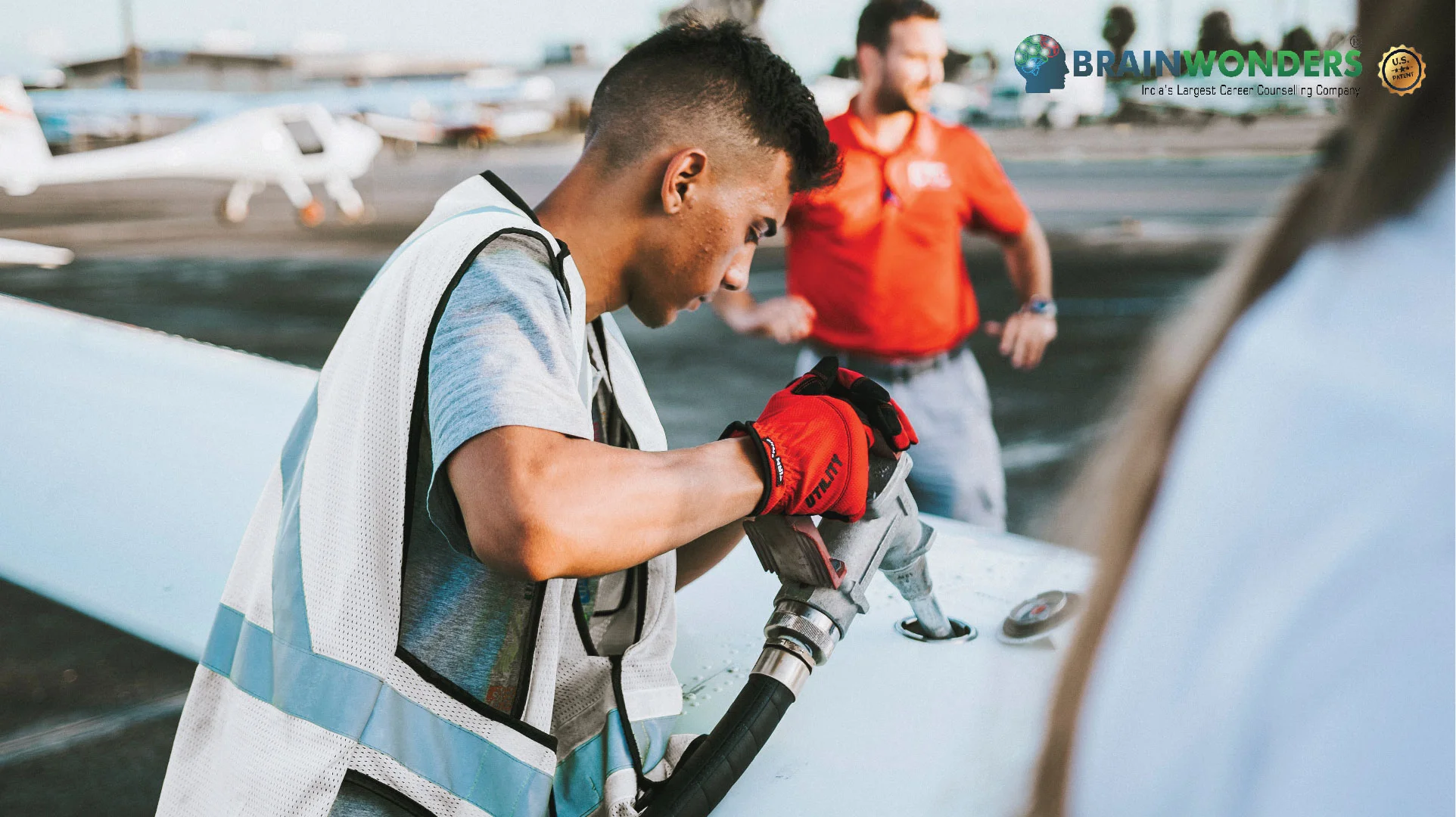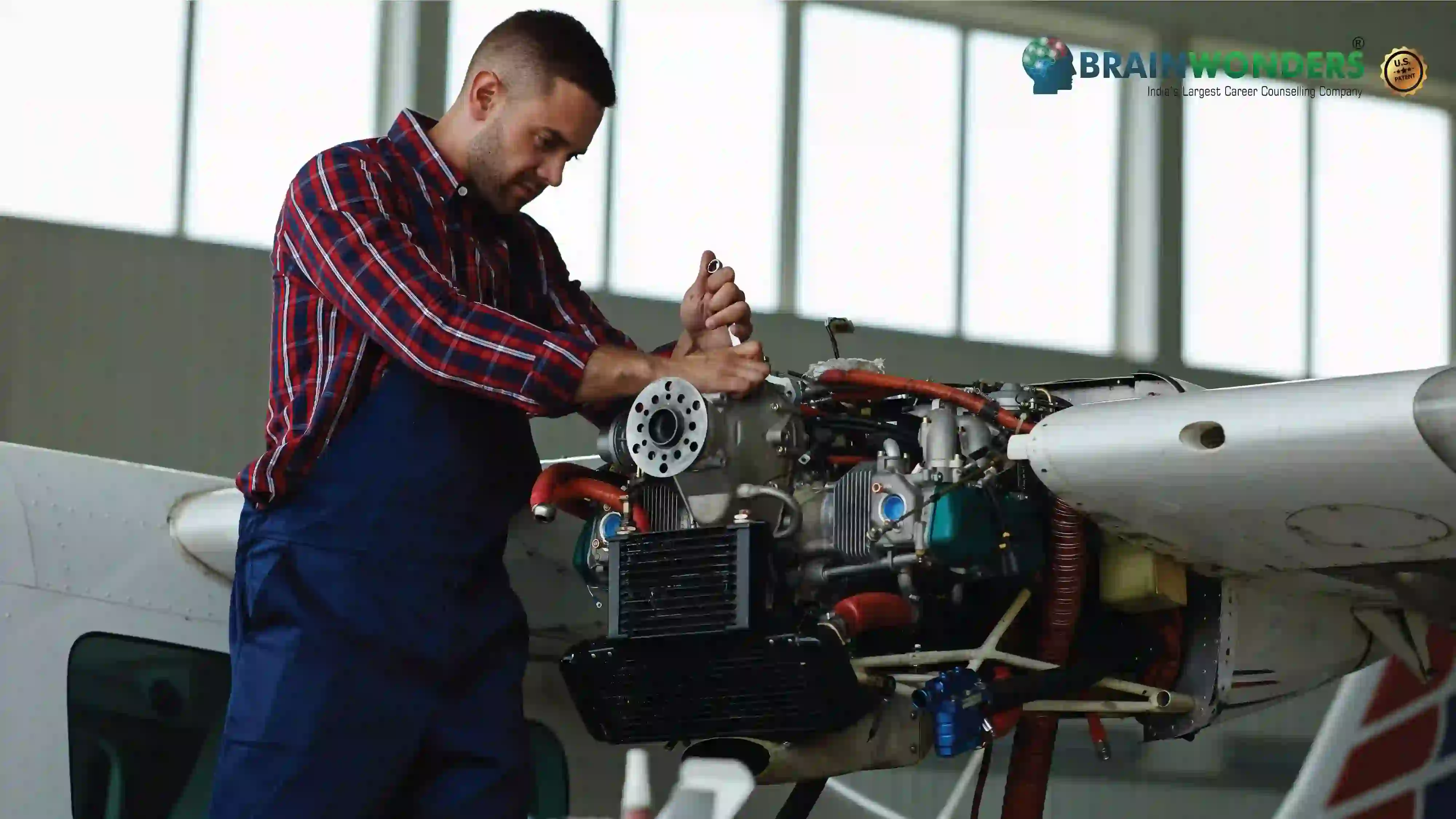How to become an Aviation Safety Inspector
Overview, Courses, Exam, Colleges, Pathways, Salary

Overview
Who is Aviation Safety Inspector ?
Aviation safety inspector primarily works to ensure the safety of aircraft by examining the quality and functioning of the equipment. By promoting aviation safety, they are responsible for the safety of the aircraft personnel, crew, and its passengers as well. They conduct preflight inspections that involve examining the working of all the components of the aircraft including the landing gear, brakes, operators, pressurized systems. They are involved in certifying pilots, aircraft mechanics, aircraft operators as well as flight instructors and aviation schools. Not only do they perform checks to ensure the proper functioning of the equipment, but their surveillance also extends to health and safety standards compliance. The services of these inspectors are required to investigate any accidents or failures related to aircraft, which is helpful to prevent the reoccurrence of the same in the future. Simply put, they examine the airworthiness of the aircraft. As needed, they mandate changes to the aircraft’s maintenance activities and schedules, providing suggestions for repair and replacement of equipment.
Typical day at work
What does Aviation Safety Inspector do?
An aviation inspector's duties are to:
- Conduct tests to check the performance of aircraft meters, landing gear, engines, gauges, and other instruments
- Examine aircraft accidents and occurrences of equipment failures to investigate the cause of the same
- Monitor the performance of the mechanics and technicians
- Issue certificates of airworthiness for those aircraft that are determined safe to fly
- Suggest changes in the maintenance processes, equipment repairs/ replacements
- Provide recommendations for policies, standards, and regulations
- Assess aviation repair facilities and aircraft maintenance training programs
- Review documentation of maintenance work and flight logs
- Generate detailed official reports to record investigations, inspections, and repair work
- Carry out routine safety checks to examine the proper installation of equipment and its working
Abilities and Aptitude needed
What are the skills, abilities & aptitude needed to become Aviation Safety Inspector?
Since the job can be physically challenging, aviation safety inspectors must possess the necessary physical stamina to carry out their tasks efficiently. They need to pass certain medical and health checks to ensure they are physically fit to carry out their tasks. Since their work has a direct impact on the safety of the aircraft crew and its passengers, the skills of critical thinking, reasoning, and decision making are an absolute necessity for this role. They should have thorough knowledge about the components and processes that make an aircraft. Another essential element is familiarity with regulatory requirements and the health and safety standards. They should be excellent at verbal communication since they are frequently required to coordinate with aircraft facility managers, technicians, mechanics, pilots and other aviation professionals. This also necessitates leadership skills as well as the ability to work as a part of a team. Proficiency with written communication is of importance too in order to produce official reports and maintain records of their findings from each inspection.
Pathways
How to become an Aviation Safety Inspector?
Entrance Exam
Entrance Exam for Aviation Safety Inspector ?
ATC License
Courses
Which course I can pursue?
Best Colleges
Which are the best colleges to attend to become an Aviation Safety Inspector?
Industries
Which Industries are open for Aviation Safety Inspector?
Aviation safety inspectors typically work in regulatory agencies or organizations responsible for overseeing and enforcing aviation safety standards. While the primary focus of aviation safety inspectors is the aviation industry, their skills and expertise can be applicable to various sectors within the industry. Here are some industries where aviation safety inspectors may find employment opportunities:
- Civil Aviation Authorities
- Airlines,Aircraft Manufacturers
- Maintenance,Repair, and Overhaul (MRO) Facilities
- Airports
- Aviation Training Organizations
- Government Agencies
internship
Are there internships available for Aviation Safety Inspector?
Internship opportunities for aviation safety inspectors may be available, although they can be relatively limited compared to other fields. Internships in this field can provide valuable practical experience and exposure to aviation safety regulations and practices. Here are a few potential avenues for securing an internship as an aviation safety inspector:
- Regulatory Agencies: Civil aviation authorities, such as the FAA in the United States or EASA in Europe, occasionally offer internships or cooperative education programs for students interested in aviation safety. These programs provide hands-on experience in regulatory compliance, inspections, and safety oversight.
- Airlines: Some airlines may offer internships in their safety departments, where interns can assist safety inspectors with various tasks related to safety management systems, regulatory compliance, and safety audits.
- Aircraft Manufacturers: Large aircraft manufacturers may have internship programs that allow students to gain exposure to safety inspection processes, quality control, and regulatory compliance in aircraft manufacturing.
- Government Agencies: Agencies like the NTSB or other government bodies responsible for aviation safety may offer internship opportunities to students interested in accident investigation, safety research, or policy analysis.
- Professional Associations: Industry organizations such as the Flight Safety Foundation or the International Society of Air Safety Investigators may have internship programs or partnerships with companies or regulatory bodies that offer internships related to aviation safety.
Career outlook
What does the future look like for Aviation Safety Inspector?
Employment opportunities for aviation safety inspectors exist in many government agencies and private sector companies including aircraft manufacturers and airlines. While often working independently, they are also required to work in collaboration with other aviation professionals. They are expected to visit the different locations to inspect aircraft as well as personnel, requiring frequent travel. While they do spend much of their time on aircraft, they are also responsible for filling out important paperwork to prepare for these inspections. On a typical day, an aviation safety inspector shall be working in aircraft hangars, examining the equipment for safety. Often, aircraft safety inspectors possess prior experience working as aircraft technicians, aircraft mechanics, or even as pilots. Most of these professionals choose to further specialize in airworthiness, avionics, maintenance, manufacturing, or operations. Apart from an attractive salary, some of the other benefits they often receive as a part of their job include health and life insurance, paid holidays, and transportation subsidies.






